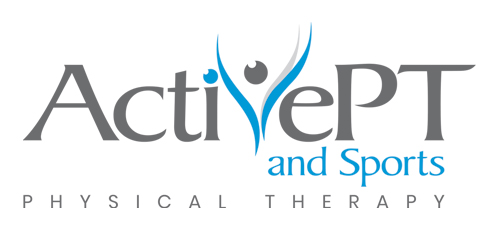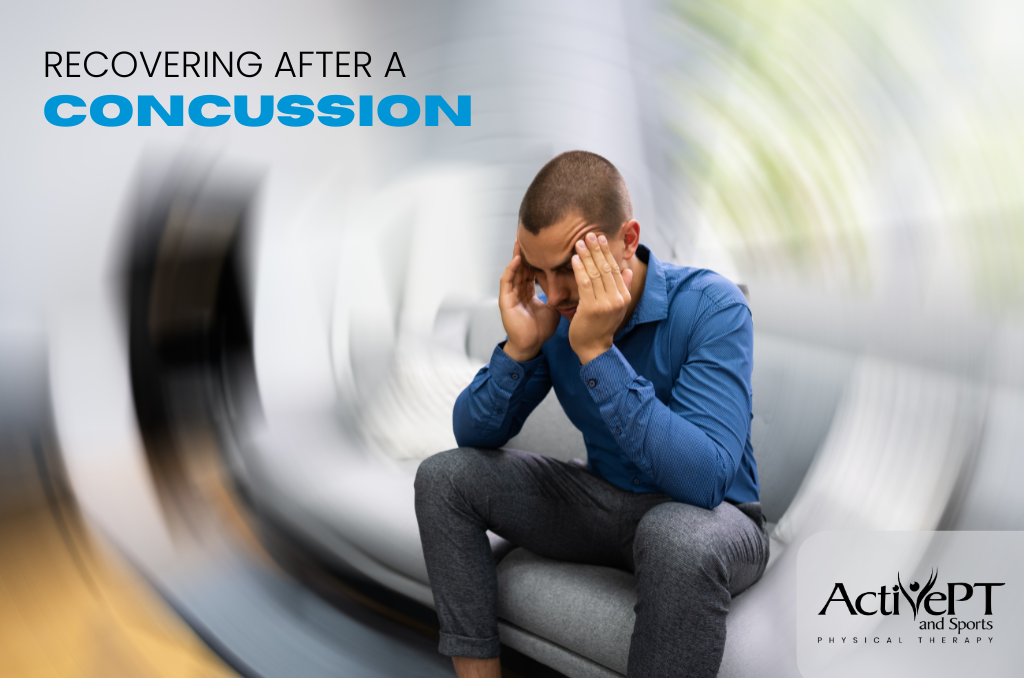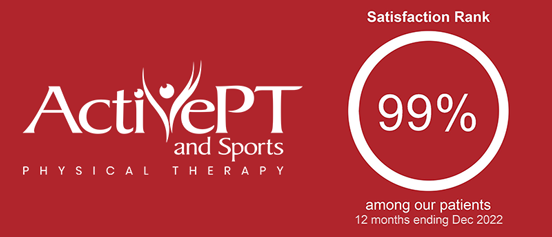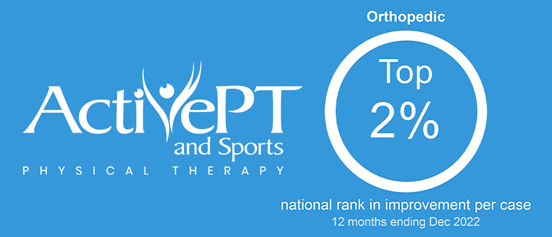Experiencing a concussion can be overwhelming, but understanding the recovery process and how to take control of your recovery is crucial to regaining your health and returning to activities. After a concussion, rest is important, but there’s more you can do to manage symptoms than simply rest. Receiving the right treatment after a concussion can help to speed up recovery.
CONCUSSION SYMPTOMS
As a physical therapist, most of my patients have already been diagnosed with a concussion by the time they walk through our doors. Their symptoms often impact school, work, or their ability to return to sports and exercise. The most common concussion symptoms include:
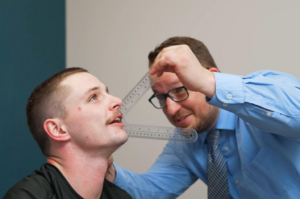
-
- Headaches
- Neck pain
- Difficulty concentrating or feeling like you are in a fog
- Memory problems
- Dizziness
- Visual disturbances like blurry vision or eye strain
- Light or noise sensitivity
- Sleep disturbance
- Mood changes
CONCUSSION RECOVERY AND TREATMENT
The number one thing you can do to maximize your recovery from a concussion is to build a strong recovery and treatment team. Your recovery journey should involve a collaborative team of professionals. Be sure to share your specific goals with your team.
CREATING YOUR CONCUSSION RECOVERY AND TREATMENT TEAM
Who do you need on your team? Your exact symptoms, complications during recovery, and severity of your concussion will influence exactly who should make up your concussion recovery and treatment team. Your team may include:
PRIMARY CARE PROVIDER
Your PCP is often your initial point of contact for concussion management. If you were evaluated in the emergency room, you will be asked to follow up with your PCP who will monitor your recovery. Your PCP can also serve as a referral source to other professionals if your insurance requires a referral for coverage.
PHYSICAL THERAPIST
A physical therapist who specializes in the treatment of concussion symptoms can be a critical part of your concussion treatment and recovery team. Your P.T. will help by using treatment techniques to reduce concussion symptoms. Treatment after a concussion can speed up recovery time. These are some of the key symptoms that a concussion specialist focuses on in physical therapy:
- Headaches and neck pain: Headache treatment and neck pain treatment may include soft tissue or joint mobilization, spinal manipulation, dry needling with electrical stimulation, neuromuscular education, stretching, and strengthening. Headaches that occur or worsen with activity can often be improved with a very specific cardiovascular exercise progression and strength training. We always recommend you increase exercise under the close supervision of a medical professional after a concussion.
- Dizziness and vestibular symptoms: Vestibular therapy can often help to reduce dizziness symptoms after a concussion. Your physical therapist may also teach you neuromuscular exercises to improve your static and dynamic balance.
- Visual disturbances: Oculomotor treatments such as gaze stabilization exercises with head movement may be used to help with issues like blurry vision, eye strain, or dizziness.
- Worsening symptoms with activity: Use the knowledge of your concussion recovery team to help you define specific guidelines for when to increase activity and when to rest. Ask questions of your team like, “Which symptoms are ok to exercise through? How intense should a headache be before I stop exercising?” Use this knowledge to allow you to progress safely through your concussion recovery.
- Sleep hygiene: Because sleep is one of the most important parts of your recovery, your physical therapist will likely teach you about proper sleep hygiene and provide you with tips and tricks to improve your sleep quality.

MENTAL HEALTH PROFESSIONAL
After a concussion, it’s essential to address the mental and emotional aspects of your recovery. Your mental and emotional symptoms after a concussion may benefit from counseling. If these aspects are overlooked, it may prolong the time needed for physical recovery.
NEUROLOGIST
A neurologist is not always involved after a concussion. However, your recovery team may refer you to a neurologist if your concussion is severe, if you have experienced multiple concussions, or if your symptoms are not improving as expected.
COACHES AND ATHLETIC TRAINERS
If you want to return to competitive sports after a concussion, your coaches and athletic trainers should maintain frequent communication with your concussion recovery and treatment team.
SCHOOL COUNSELORS AND NURSES
If you are returning to school, your concussion recovery team may recommend “brain breaks” in your school day. Working closely with your teachers, school counselor, and school nurse makes this process less stressful.
HOW TO SPEED UP RECOVERY
Unfortunately, there is no magic pill to speed up recovery from a concussion. However, the key part of recovery that IS within your control is building a strong recovery and treatment team and actively participating in your concussion treatment. Start by seeking treatment to reduce concussion symptoms as quickly as possible. Your recovery team will monitor you closely and tell you if you are recovering at an appropriate speed. If not, they can refer you to a specialist to keep your concussion recovery moving forward. Having a skilled and knowledgeable recovery team on your side will help you achieve the fastest possible recovery after your concussion.
IS IT NORMAL FOR CONCUSSION SYMPTOMS TO COME AND GO?
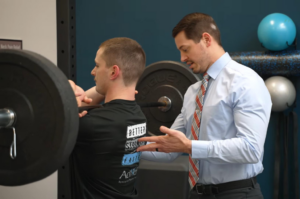
Yes. Concussion symptoms tend to increase and decrease, especially with activity. This is an important reason why treatment after a concussion often includes care by a physical therapist who specializes in concussion recovery. Knowing when to rest and when to push yourself is not intuitive. Instead, lean on your recovery team to help answer the questions of when to push yourself and when to rest. While I won’t go in-depth about when to have your concussion evaluated by a medical professional, this article by Mayo Clinic is a great resource.
HOW LONG DOES IT TAKE TO RECOVER AFTER A CONCUSSION?
I wish I had a simple answer to this question for you, but I do not. Recovery after a concussion is different for each person. The severity of your concussion, number of prior concussions, treatment after your concussion, history of headaches or migraines before your concussion, and many more variables affect your recovery from symptoms and total recovery time after a concussion. If your goal is to return to school or work that requires constant concentration and a high level of athletic activity, making a “full recovery” will likely take longer than someone who is mentally and physically less active.
START TAKING CONTROL OF YOUR RECOVERY TODAY
A physical therapist who specializes in the treatment of concussions is a key player on your treatment team. In Minnesota, you can see a physical therapist directly, without a referral, but each state differs. If you are unsure if physical therapy is right for you, we recommend setting up a free 15-minute screening appointment with a concussion specialist. Your PT can meet with you to learn about your concussion, answer your questions, and help you decide the next best steps toward recovery. If physical therapy is not right for you, we will refer you to someone who can help.
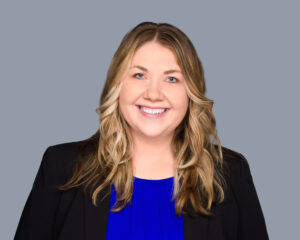
Ashlee Harriman, DPT . Ashley is passionate about the care of patients who have suffered from a concussion. She enjoys treatment of concussion symptoms, headaches, and vestibular dysfunction.
